Hong Kong sends ‘humiliating’ message to Chinese leadership with record low election turnout
Analysis: Just 27.5% of voters turned out for Sunday’s election, down from 71% in 2019. Experts and activists tell Shweta Sharma the people of Hong Kong are speaking out against recent autocratic reforms – in the only way they still can

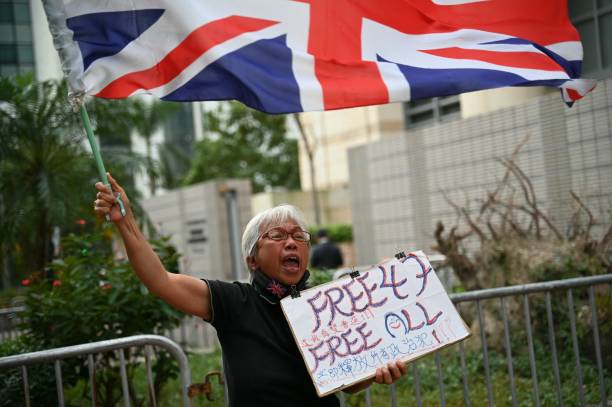
Your support helps us to tell the story
From reproductive rights to climate change to Big Tech, The Independent is on the ground when the story is developing. Whether it's investigating the financials of Elon Musk's pro-Trump PAC or producing our latest documentary, 'The A Word', which shines a light on the American women fighting for reproductive rights, we know how important it is to parse out the facts from the messaging.
At such a critical moment in US history, we need reporters on the ground. Your donation allows us to keep sending journalists to speak to both sides of the story.
The Independent is trusted by Americans across the entire political spectrum. And unlike many other quality news outlets, we choose not to lock Americans out of our reporting and analysis with paywalls. We believe quality journalism should be available to everyone, paid for by those who can afford it.
Your support makes all the difference.After years of unprecedented crackdowns on opposition and dissent in Hong Kong through arrests, prosecutions and sweeping overhauls of the law, the city of 7.5 million people has spoken out in defiance: by refusing to cast their votes in a deeply compromised election under the new system.
Final turnout figures show that fewer than 1.2 million Hong Kong residents – a mere 27.5 per cent of the electorate – voted in the city’s district council polls on Sunday, a development which experts and exiled activists said would be “hugely humiliating” and “upsetting” for China.
Sunday’s vote was the first local election since the Hong Kong authorities changed the rules so that only candidates deemed sufficiently “patriotic” to China could run for office, effectively shutting out all opposition parties and members of the popular 2019 pro-democratic movement.
And while Beijing will point to victories for its candidates as proof the exercise was a success, huge effort was put into boosting turnout in a bid to show that the city supported the recent reforms.
City officials were deployed on mass in the run-up to the election to drum up enthusiasm, with a vast and “urgent” public appeal to citizens to do their duty and vote. Various incentives to vote were offered including free transportation and fairground-style entertainment, and voting was even extended on Sunday evening for an extra two hours with the government blaming “system failure” earlier in the day for preventing people from voting.
None of it worked, and the final turnout figures represent an extraordinary decline from the record 71 per cent who voted at the last local council election in 2019, which came at the height of the protest movement and handed landslide victories to pro-democracy candidates in a show of public defiance.
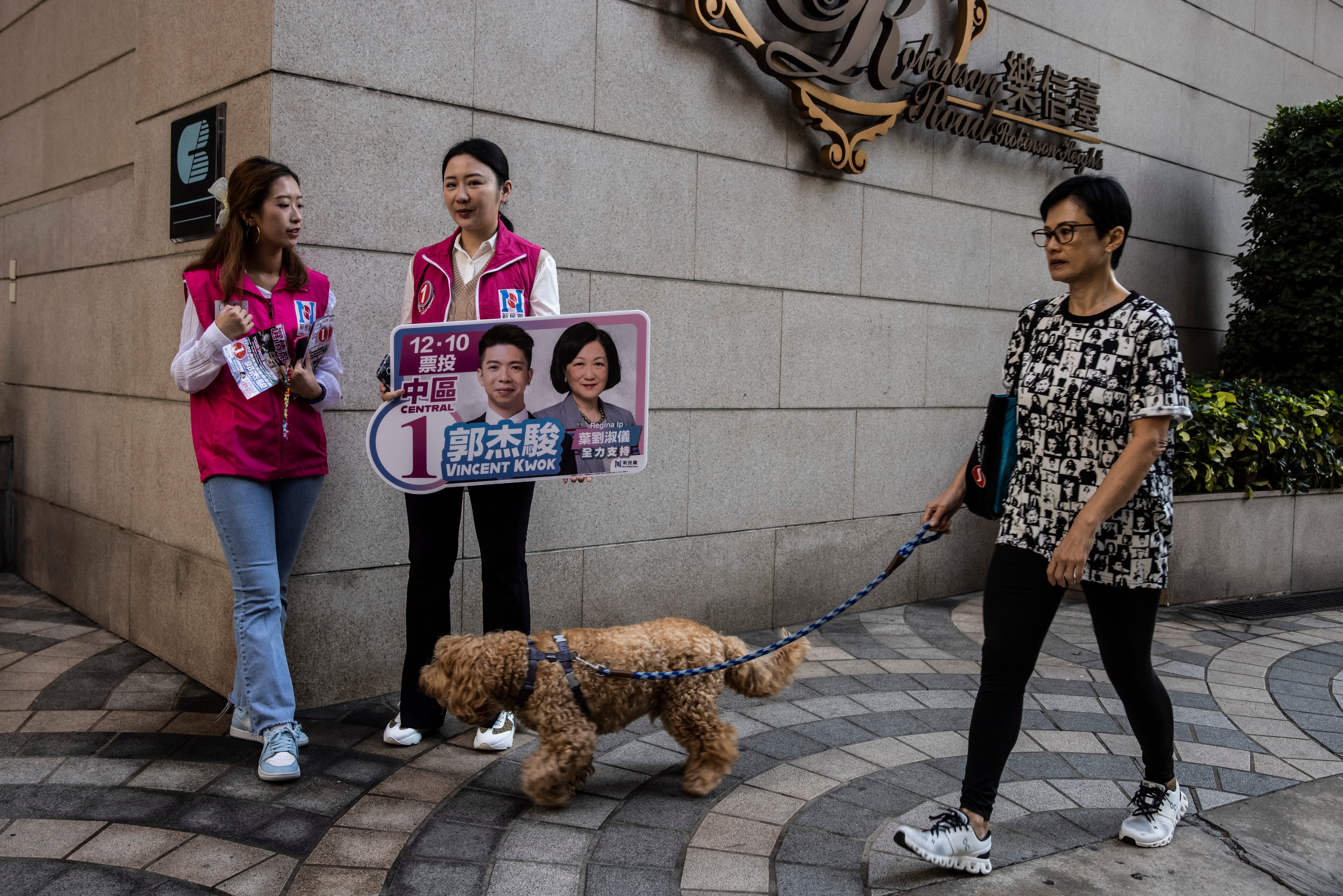
Dr Eric Lai, a research fellow at Georgetown University’s Center for Asian Law, told The Independent that China had hoped to use a successful election as a response to Western criticisms that it has undermined Hong Kong’s autonomy since the passage of sweeping legal reforms in the name of national security in June 2020.
“It is an embarrassment for both the Chinese and Hong Kong governments, as they attempted to use the weakened district council elections to decorate the regime as ‘democratic’ and ‘earning high popularity’,” he said.
“The number of votes speaks [to the fact] that the mainstream population are not buying what the government has done to the political system, by not casting a ballot at all.”
Nathan Law, an activist and former Hong Kong politician who fled to the UK during the crackdown, said the historically low turnout despite an unprecedented campaign to get the vote out shows that “even though the protest has died down, the people of Hong Kong are still aware of the political turmoil and refuse to support the government”.
“The turnout is of course upsetting for Beijing,” he told The Independent. “It could be an opportunity for the Beijing side to rethink its approach to Hong Kong, as the leadership started to soften its tone to safeguard its economic development.”
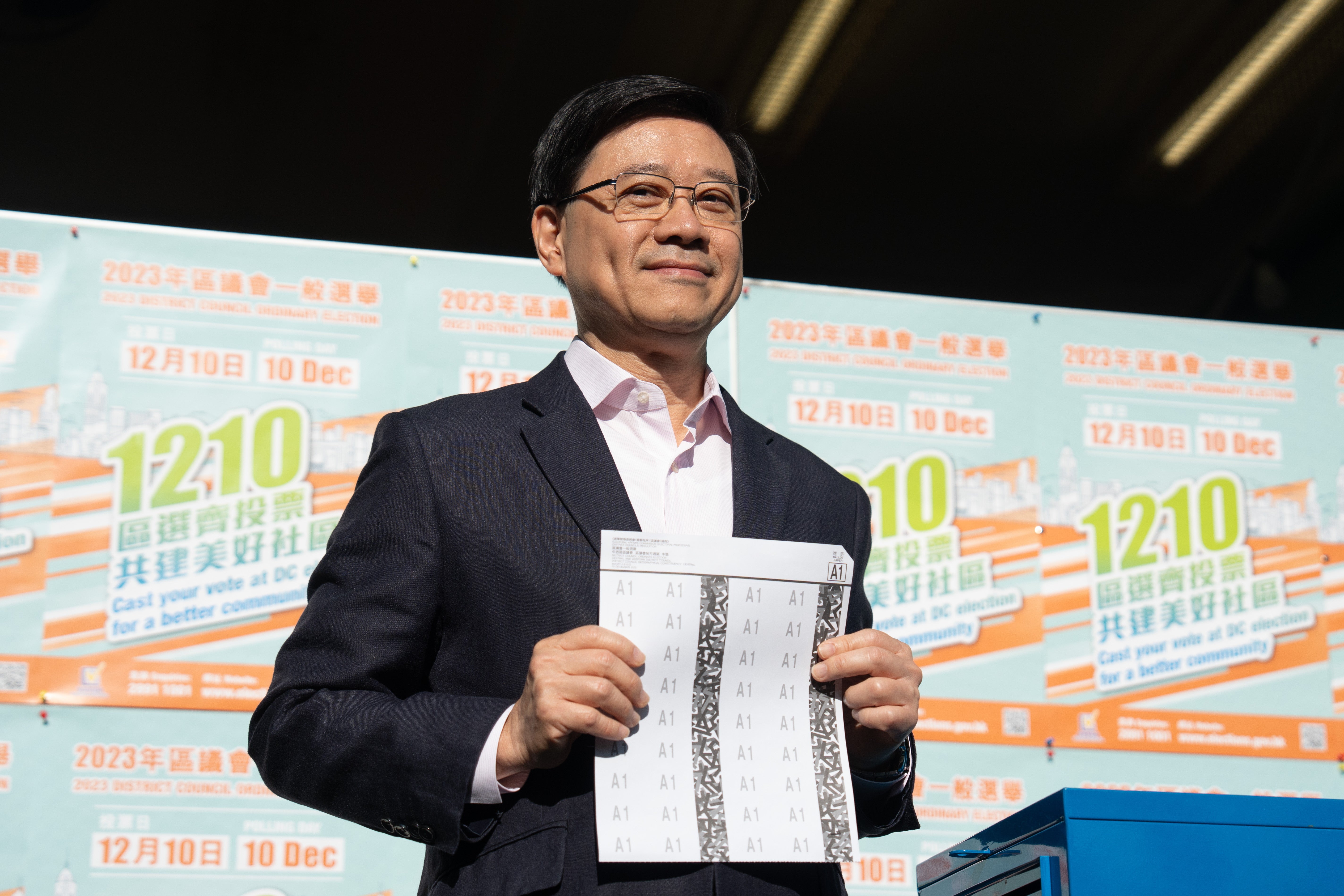
In the electoral reforms passed in March 2021, the Chinese government announced an amendment to Hong Kong’s Basic Law, its version of a constitution, to drastically limit Hong Kongers’ ability to stand for election.
It required all candidates to undergo national security background checks to verify their “patriotism”, and to secure nominations from pro-government committees. A number of opposition parties and movements were outright banned.
A new amendment passed in July then cut down the proportion of directly elected seats from some 90 per cent to about 20 per cent – a level even lower than when the bodies were first introduced in the 1980s under British rule. The rest of the candidates will be chosen by the city’s Beijing-appointed leader and government-appointed committees.
“The historically low turnout means that the authorities cannot use the district council election results to claim that the public in Hong Kong endorses the reforms. [More than] 70 per cent of voters chose not to participate,” emeritus Professor John Burns, of Hong Kong University’s department of politics and public administration, told The Independent.
Prof Burns says that as well as sending a message of public dissatisfaction, the turnout figures could shake Beijing’s confidence in its officials in Hong Kong, with a reckoning likely to follow.
“The central government may perceive that Hong Kong authorities lack mobilisational capacity to get out the vote,” he said.
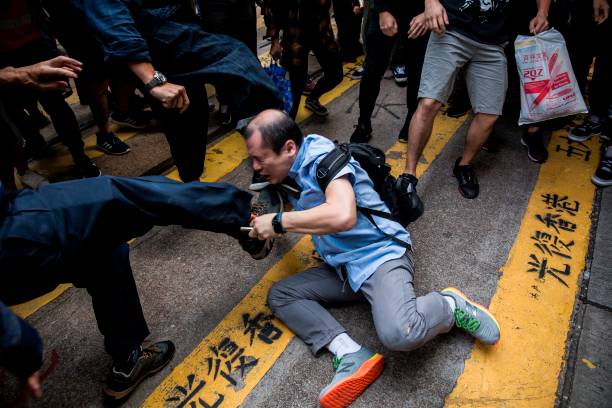
This was only the second time an election was held under the new “patriots-only” system. A general election in 2021 saw a similar lacklustre participation with a record low turnout of 30.2 per cent.
“’Patriots-only’ governance is unpopular,” Kenneth Chan, associate professor of government & international studies at Hong Kong Baptist University, told the Independent.
“The record low turnout must be hugely humiliating for the government and its allies given the unprecedented propaganda campaigns and ubiquitous mobilisation,” he said.
UK-based activist Luke de Pulford, executive director of the Inter-Parliamentary Alliance on China, says Sunday’s election was clearly a “protest vote”, and that the only way Hong Kongers could express their discontent was to stay away.
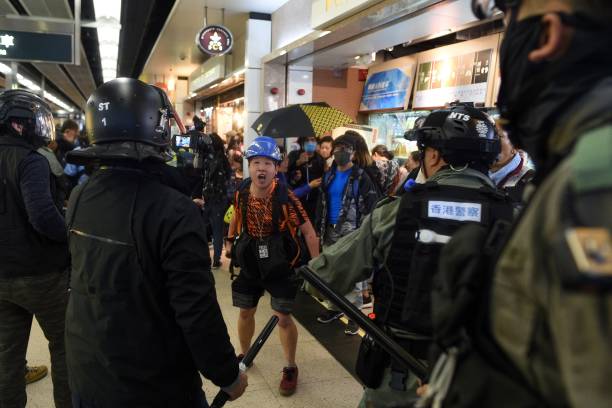
“A 50 per cent reduction in turnout between 2019 and 2023 is a damning indictment of the degree to which Beijing has destroyed the vestiges of democracy in Hong Kong. Even with a large number having fled to other countries in search of freedom, the proportion turning out was incredibly low,” Pulford adds.
“The authorities might try to save face now by downplaying the result, but the evidence shows otherwise. This is a humiliating result for Beijing, and one they richly deserved.”
Whether they have received the message behind closed doors, publicly the Chinese authorities have so far refused to acknowledge any issues with Sunday’s vote.
Hong Kong leader John Lee neglected to mention the percentage turnout at a Tuesday news conference, where he insisted: “The turnout of 1.2 million voters has indicated that they supported the election, they supported the principles.
“It is important that we focus our attention on the outcome of the election,” he added. “The outcome will mean a constructive district council, rather than what used to be a destructive one.”
Unnamed central government officials were quoted by state newspaper the Global Times as declaring the election “fair, just, engaged and orderly”.
And they hit out at the fact that “some Western media ... focused on the low turnout of this year’s election”, calling it part of a “malicious slander and smear campaign”.
Join our commenting forum
Join thought-provoking conversations, follow other Independent readers and see their replies
Comments